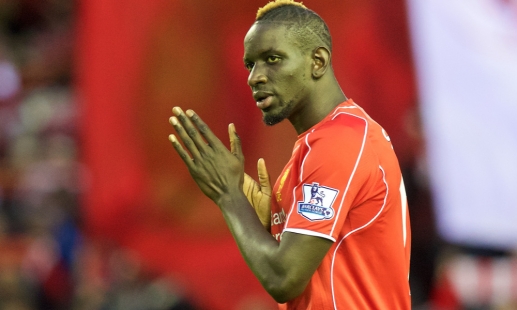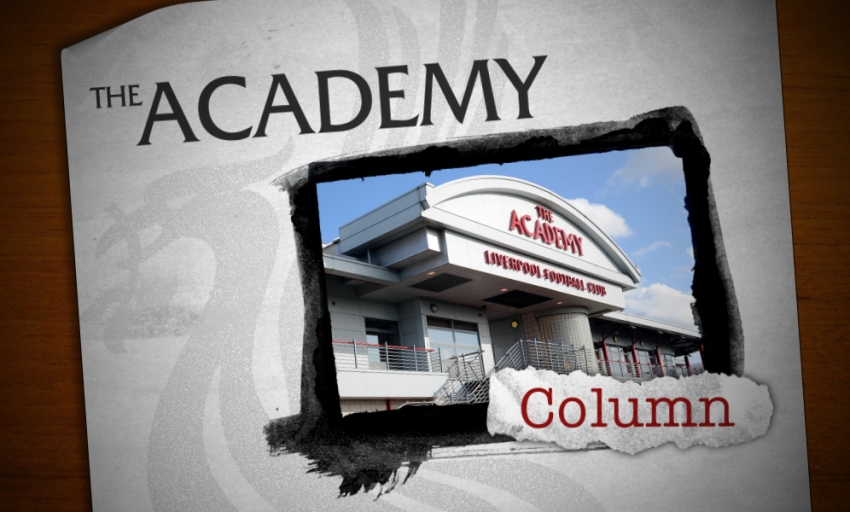Academy column: Analysis inspiration
In this week's Academy column, head of development analysis Tim Jenkins explains his role and tells us how Lucas Leiva, Mamadou Sakho and Emre Can play an inspirational part.
My role as head of development analysis encompasses three parts. The first one is heading up the analysis department at the Academy. I work alongside Scott Mason, who does the analysis for the U18s, and Bradley Wall, who works with the U16s, and we also have Jonathan Robinson, who works from U8 to U14 level. Within that structure I'm the team analyst for the U21s and also the assistant coach to Michael Beale, which I'm really enjoying. Michael is a very forward-thinking coach who is extremely innovative and I have a lot of respect for him. When Alex Inglethorpe and Michael asked me to be the assistant I was delighted as coaching is something I have been eager to get back involved in. This dual role between coaching and analysis is something fairly unique within English football and goes to show how the structure here is flexible enough to incorporate new ways of working rather than just sticking with tradition.
A typical day to day for me involves initially working with Michael in the morning to plan our session for the U21s. My role within that is to try to ensure that the individual development plans that we have put together for the players will be incorporated in that session. For example, we might look at a couple of clips of Joe Maguire's defending before we plan a session. We look at the way he has been defending in one-on-one situations, because we have been trying to get him to block more crosses with his left foot. We'll then ensure that he gets opportunities in the session to practice this technique.

Before Jerome Sinclair went to Wigan we were working with him on scoring more goals from a couple of different angles we identified through the analysis as being areas for improvement. We also work with Harry Wilson and Ryan Kent on their finishing so it's about planning and then carrying out these specific sessions. I think some people see the analyst as someone who sits in front of a laptop, number-crunching in an office all day, but that isn't the case at this club. We have been proactive and get out with the players and put our practices into place, and Alex and Michael are very receptive to that. We do use numbers because we have a system set up by the research department at Melwood that gives us an unbelievable amount of data on an individual player, so we know for example how many shots Ryan Kent has had this season and from what areas of the field. It also shows us which areas he has missed from so we can work with him on that and make the training specific.
The afternoon session of a typical day is when I will go through the analysis work and look at the recent games we have played, which enable us to create a database of each player and have individual video clips relating to their development plan. We use it as a resource to feed back to the players and track their development over time. It's important to say that we don't use the analysis to criticise. It is purely to help each individual player improve and reinforce positive behaviours. We don't use the analysis as an inquest for when we lose a game, it's about keeping the positives and hopefully taking us to the next level.

Mamadou Sakho played with us recently in the U21s team when he came back from injury in the mini-derby against Everton. He also played for us last year in the away game at West Ham along with Lucas Leiva. When these players drop down to join our group we'll highlight positive elements of their play to show to our players. So for example, the way Sakho is able to defeat the press by outplaying his opponent and carry the ball out from the back, he is one of the best around at doing that. We also use clips of Emre Can from our first-team games to highlight this type of play and feed back to our defenders Lloyd Jones and Danny Cleary.
I am now in my third season at Liverpool and this is such a wonderful club to work for, with great values. It is a pleasure and a privilege to work here in Kirkby under Alex. All the departments interact well together. Ultimately, Alex leads it from the top but he has integrated everyone together which makes this place a fantastic environment to work in. It's important because we have a lot of support staff here and the danger is if they work independently of each other you never get a holistic approach to developing the player. The strength at this club is everyone works together. Before I joined Liverpool I was working as the U21s analyst at Manchester City.

My career in performance analysis actually started back in 2001 with ProZone. Football analysis was very much in its infancy then and I was working with people like Dave Fallows, who of course now works for Liverpool. We developed the Prozone product that you see today which most teams utilise. I then worked as the analyst at Derby County under Jim Smith, John Gregory and George Burley. I always felt there was probably scope for analysis to be utilised more effectively in order to improve performance. Manchester United were using it and were very successful with it, and it was one of those things that people wanted to use but maybe didn't know how to use to best suit their needs.
I wanted to develop as a coach and find my own ways of bringing coaching and analysis together so I left Derby and went to run the football academy at Hartpury College. That gave me a bit more freedom to coach and continue to do the analysis work, and it helped me develop some techniques we use today at Liverpool. After seven years there gaining some really useful experience I made the move back into analysis with Manchester City. Coming to Liverpool, I think one of the strengths we have here is everything is along the same line and everyone sees the game in the same way, so the integration of the analysis into the coaching process is really good. The coaches and the analysts work very closely together and it's been really successful in what we have achieved so far.



